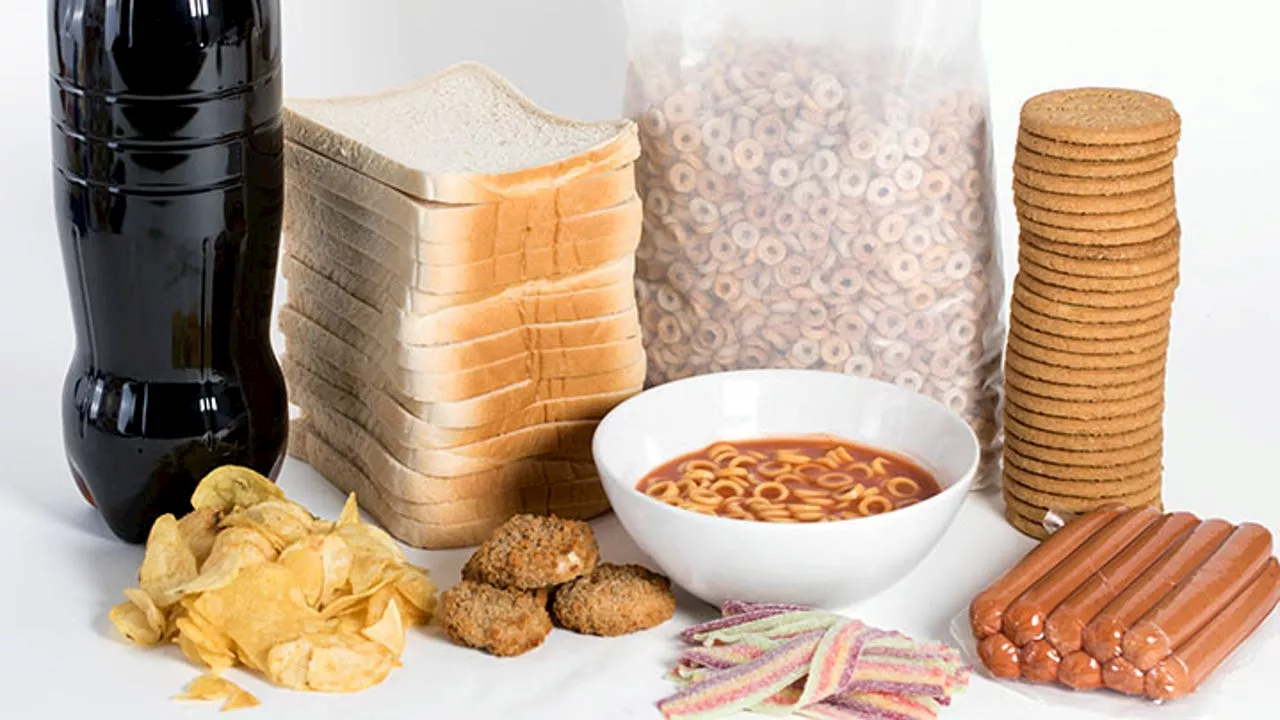Health
Study Links Ultra-Processed Foods to Increased Colon Cancer Risk

A new study reveals a concerning connection between the consumption of ultra-processed foods and an elevated risk of developing precancerous growths in young adults. Conducted by researchers at the Mass General Brigham Cancer Institute, the study focused on nearly 30,000 young, healthy women and found that higher intake of these foods was associated with an increased likelihood of developing colon adenomas, which are precursors to colorectal cancer.
Ultra-processed foods encompass a wide range of items, including boxed soups, frozen meals, and other products designed for convenience with extended shelf lives. These foods, which many individuals became accustomed to in the 1970s, 1980s, and 1990s, are characterized by their industrial ingredients that are rarely found in home kitchens. According to public health estimates, ultra-processed items account for about 70% of the average American diet.
Dr. Katherine Van Loon, a professor at the University of California, San Francisco, and director of the UCSF Global Cancer Program, emphasized the importance of these findings. “Every patient in my clinic is very, very young,” she noted, highlighting the troubling trend of rising colorectal cancer diagnoses among individuals under 45 years old. While there has been a decrease in cases among older populations, the incidence among younger adults is increasing, leading to higher mortality rates from a disease that is largely preventable.
Previous studies have linked early-onset colorectal cancer to factors such as obesity, Type 2 diabetes, sedentary lifestyles, and diets rich in red and processed meats, along with high sugar intake. However, Dr. Van Loon pointed out that many of her young patients do not fit these typical risk profiles. “That’s why this study is so important,” she added. “It adds another layer to what may be driving this epidemic.”
The research did not specify individual foods, but Dr. Van Loon reiterated that ultra-processed items typically include convenient meals and snacks that have become staples for many. She believes it is not too late for individuals to change their dietary habits. Drawing parallels to tobacco research, she stated, “When someone stops smoking, their cancer risk decreases,” suggesting that similar benefits could arise from reducing ultra-processed food consumption.
Dr. Van Loon advocates for prioritizing fresh foods, including fruits, vegetables, and unprocessed meats. She also urges individuals aged 45 and older to undergo routine screenings for colorectal cancer. Furthermore, she stressed the significance of not dismissing concerning symptoms at any age. “If someone is experiencing bowel changes, blood in their stool, abdominal pain, cramping, or unexplained weight loss, they should see a doctor,” she advised. “Just because you’re not yet 45 doesn’t mean those symptoms don’t need medical attention.”
Increasing awareness and encouraging earlier medical consultations could be crucial steps in reversing the alarming trend of rising colorectal cancer rates among younger populations. As research continues, it remains vital for individuals to be informed about their dietary choices and potential health implications.
-

 Science3 weeks ago
Science3 weeks agoOhio State Study Uncovers Brain Connectivity and Function Links
-

 Politics3 weeks ago
Politics3 weeks agoHamas Chief Stresses Disarmament Tied to Occupation’s End
-

 Entertainment3 weeks ago
Entertainment3 weeks agoMegan Thee Stallion Exposes Alleged Online Attack by Bots
-

 Science1 month ago
Science1 month agoResearchers Challenge 200-Year-Old Physics Principle with Atomic Engines
-

 World3 weeks ago
World3 weeks agoFDA Unveils Plan to Cut Drug Prices and Boost Biosimilars
-

 Entertainment3 weeks ago
Entertainment3 weeks agoPaloma Elsesser Shines at LA Event with Iconic Slicked-Back Bun
-

 Top Stories3 weeks ago
Top Stories3 weeks agoFederal Agents Detain Driver in Addison; Protests Erupt Immediately
-

 Business3 weeks ago
Business3 weeks agoMotley Fool Wealth Management Reduces Medtronic Holdings by 14.7%
-

 Entertainment3 weeks ago
Entertainment3 weeks agoBeloved Artist and Community Leader Gloria Rosencrants Passes Away
-

 Business3 weeks ago
Business3 weeks agoHome Depot Slashes Prices on Halloween Favorites Up to 75%
-

 Politics1 month ago
Politics1 month agoNHP Foundation Secures Land for 158 Affordable Apartments in Denver
-

 Top Stories3 weeks ago
Top Stories3 weeks agoOrioles Hire Craig Albernaz as New Manager Amid Rebuild








